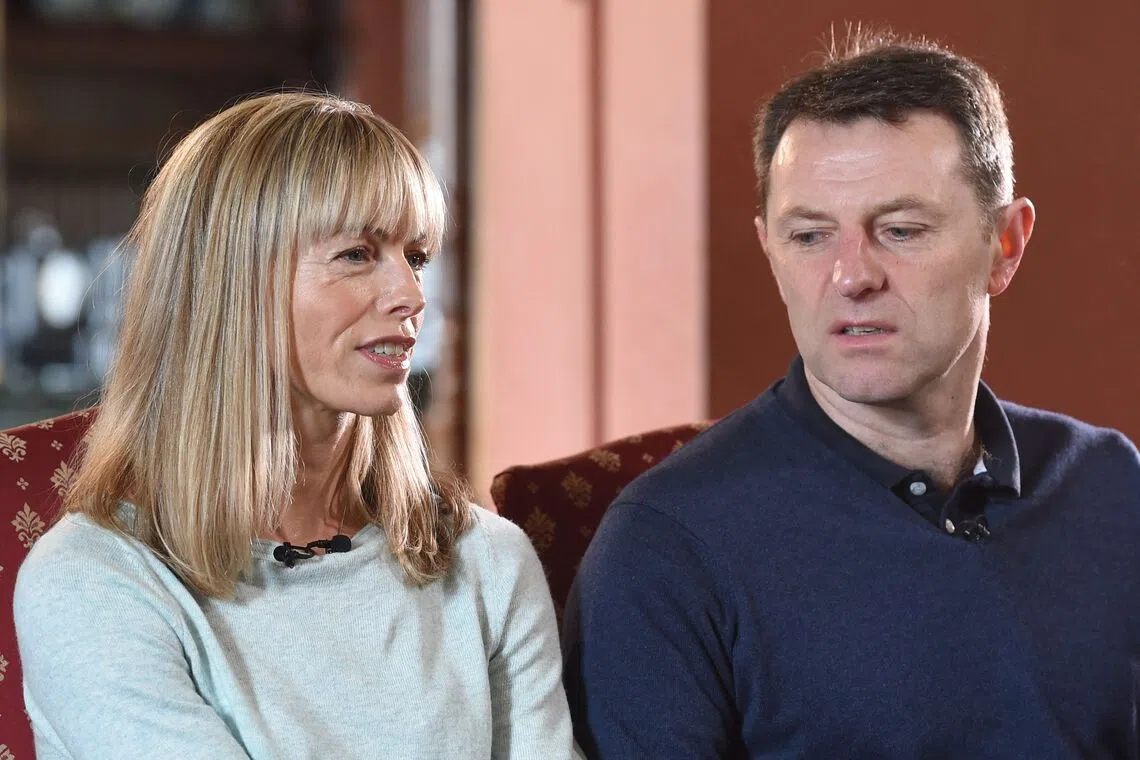Alleged stalker not related to McCann family, expert tells court
Sign up now: Get ST's newsletters delivered to your inbox

Ms Wandelt is on trial accused of stalking Kate and Gerry McCann (pictured) and causing them serious alarm and distress.
PHOTO: AFP
Follow topic:
LONDON - A Polish woman accused of stalking the family of Madeleine McMann is not related to the missing girl according to DNA samples, a court was told on Oct 20.
Julia Wandelt, 24, who has claimed to be the missing British girl, “is not the biological child of Kate and Gerry McCann”, forensic expert Rosalyn Hammond told jurors at Leicester Crown Court.
Ms Wandelt is on trial accused of stalking the McCann parents
Claiming to be their missing daughter, she is alleged to have bombarded them with messages and turned up at their address between June 2022 and February 2025.
A sample of her DNA was taken by police after she was arrested in Bristol earlier in 2025.
A sample was also taken from an embroidered pillowcase recovered from Madeleine’s bedroom shortly after she went missing while the family was on holiday in southern Portugal in 2007.
The samples were “not a match” and Julia Ms Wandelt cannot be Madeleine McCann, Hammond said.
The court heard Ms Wandelt previously claimed to have a nearly 70 per cent match with a sample taken from where Madeleine disappeared in the resort town of Praia da Luz, Portugal.
Ms Wandelt and her co-defendant, 61-year-old Karen Spragg, from Cardiff in Wales, both deny one count of stalking.
The unsolved case, which generated huge international and media interest, was thrust back into the spotlight last month after the top suspect in the disappearance was released from a German prison.
Christian Brueckner – who had finished a seven-year jail term for raping a 72-year-old American woman – has not been charged in the McCann case because of a lack of evidence. AFP

